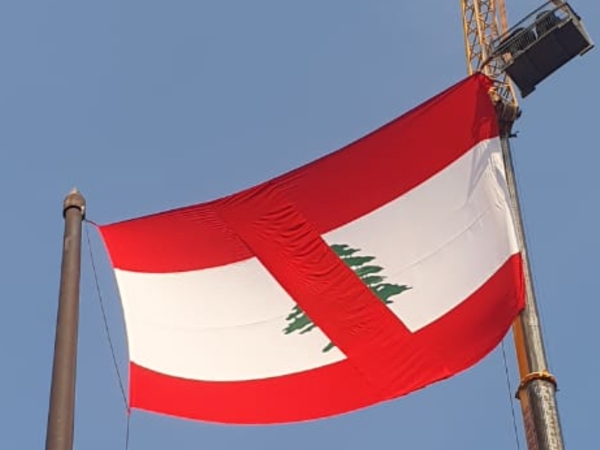News - Advertising
An-Nahar’s bold marketing stunt backfires: the Lebanese flag with a red stripe sparks controversy
by Rebecca Isaac
March 7, 2025

In a recent marketing campaign for International Women's Day (March 8), Lebanese newspaper An-Nahar sparked controversy by unveiling a modified version of the national flag in Beirut's Martyrs' Square.
The flag, which featured the cedar tree crossed out with a red stripe, is designed to symbolize the ongoing struggle for gender equality in Lebanon.
Although the message isn’t so obvious, the crossed-out flag likely hints at inequality, subtly referencing the mathematical symbol ≠.
The initiative, aimed at highlighting the need for equal rights among all citizens, faced intense backlash. Critics viewed the alteration of the national flag as disrespectful and inappropriate.
The campaign quickly drew criticism from Lebanon’s President Joseph Aoun, ignited a firestorm on social media, and led to calls for sanctions against those responsible.
President Joseph Aoun strongly condemned the campaign, stating, "This is unacceptable. It is not permitted to tamper with the flag, even with good intentions, because the flag is a symbol of the country, and it is our duty to preserve it."
Despite the controversy, An-Nahar's editor-in-chief Nayla Tueni defended the campaign, reaffirming the newspaper’s commitment to women’s rights.
"We are determined to investigate all issues and raise our voices to achieve everything that concerns Lebanese women," she stated.
"We stand by women and want to fulfill all their demands, securing the rights that have not yet been granted. That is what we are doing today."
Alongside the campaign, An-Nahar hosted an event featuring influential women, including former MP Rola Tabsh, who stressed the need for women to be able to grant nationality to their children, and Hiba Kawas, President of the National Higher Conservatory of Music, who emphasized the importance of equal opportunities. Gender expert Abir Shbaro and banking executive Josephine Chahwan also addressed challenges Lebanese women face in legal and professional spheres.
The incident highlights the challenges of using national symbols in campaigns.
While this PR stunt sought to spark discussion about gender inequality, it ultimately underscored the sensitivities surrounding national identity.
PR stunts often aim to be memorable and newsworthy, sometimes pushing the boundaries of creativity or controversy to stand out. While they can be highly effective, they also carry risks if not executed properly, as they might backfire.
Nonetheless, the broader conversation on women’s rights in Lebanon continues, with activists and officials pushing for urgent reforms in nationality laws, workplace equality, and political representation.











